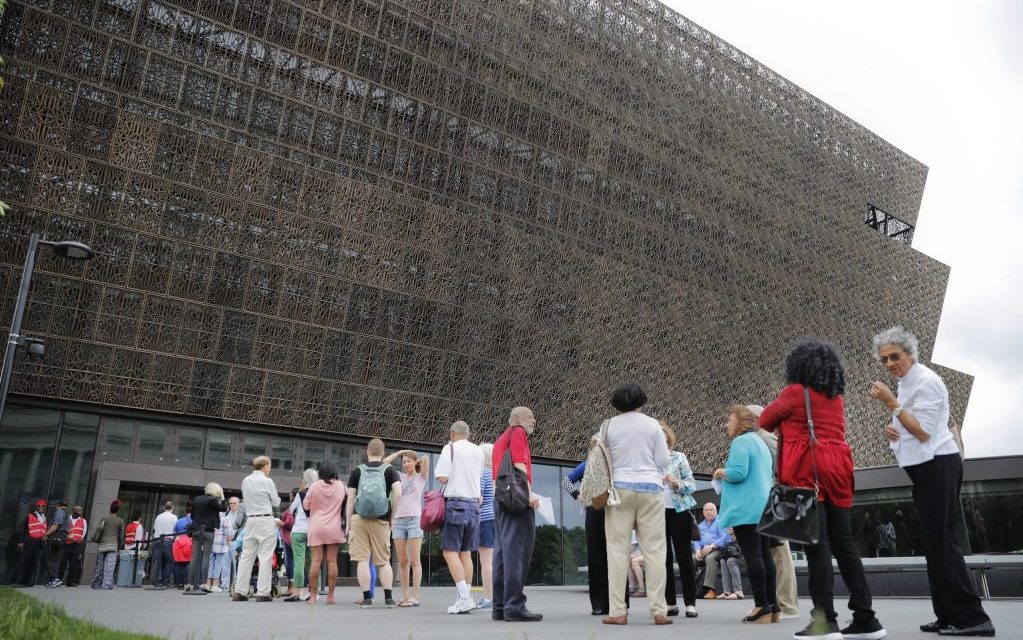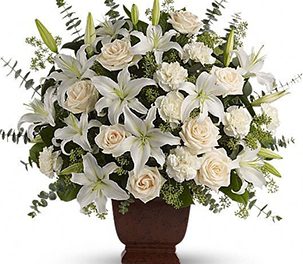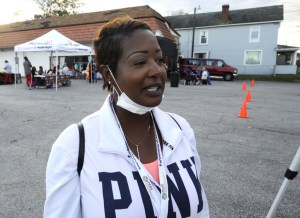By D. Kevin McNeir
Special to the AFRO
Since opening its doors on Sept. 24, 2016, the Smithsonian’s National Museum of African American History and Culture (NMAAHC) has served as a place where all Americans can learn about the richness and diversity of the African American experience, what it means to their lives, and how it helped us shape this nation.
Recent exhibits include Harriet Tubman’s hymnal; Nat Turner’s Bible; a plantation cabin from South Carolina; Chuck Berry’s red Cadillac convertible and works by prolific artists like Charles Alston, Elizabeth Catlett, Romare Bearden and Henry O. Tanner.

NMAAHC will host a wide range of programming in November on topics including the Reconstruction era following the end of the Civil War, the impact of Mary McLeod Bethune and other Black women activists. There will also be space dedicated to new practices in African American religion and spirituality.
On Thursdays, Nov. 7, 14 and 21 (11 a.m. – 1 p.m.), children ages 3 – 8 can connect with history and culture through art and play at the museum, learn about ways to express their unique identities and celebrate what makes “you YOU” with a special project and reading corner. The event is free, but registration is required.
On Tuesday, Nov. 12 (6 p.m. – 8:15 p.m.), Dr. Kate Masur will lead a panel discussion about the end of the Civil War, the abolition of slavery and how newly-freed Blacks approached opportunities to build their lives as freedmen and women. Grounded in the history of Washington, D.C., her book, “Freedom Was in Sight: Reconstruction in the Washington, D.C.,” refutes Reconstruction’s conventional endpoint of 1877 and spotlights well-known and lesser-known people who worked to empower the Black community during this period. Joining Masur on the panel will be educator Jessica Rucker and Maya Davis, director of Riversdale Historic House in Prince George’s County, Maryland. This event is free but registration is required.
On Thursday, Nov. 14 (7 – 8 p.m.), in the Oprah Winfrey Theater and streaming online, Brown University professor and public historian, Noliwe Rooks, will discuss highlights from her biography of the founder of Bethune-Cookman Institute in Daytona Beach, Fla., titled “A Passionate Mind in Relentless Pursuit: The Vision of Mary Mcleod Bethune.” In Rooks’ comprehensive work, she illustrates how Bethune worked to advance the struggle for freedom and equality, opening the doors for Black women to claim their citizenship rights and take an active role in shaping American democracy.
In July, the museum opened an exhibition exploring the life and impact of Bethune, which features 75 images, 35 artifacts, a multimedia film, an interactive engagement and an eight-foot-tall plaster sculpture of her.
Finally, on Sunday, Nov. 17 (3 – 5 p.m.), “Intergenerational Reflections on Activism” will showcase results from an intergenerational initiative that attempts to capture the stories and reflections of elder social justice activists and foster connections between them and the next generation of activists and scholars. From April 2023 to March 2024, the NMAAHC Oral History Initiative collaborated with nine young scholars to conduct 16 oral history interviews with veteran activists in Washington, D.C., Jacksonville, Fla., the San Francisco Bay area and Atlanta. This program will include both clips from the interviews and a panel discussion with project participants and social justice veterans including Joyce Ladner, W. Paul Coates and Frank Smith. This event is free but registration is required.
Since its opening, NMAAHC has welcomed 11 million in-person visitors and millions more through its digital presence.
The idea of erecting the museum first received public attention a century ago when Black veterans of the Civil War proposed the plan. It gained momentum after Civil Rights Movement icon and Georgia Congressman John Lewis took up the mantle and secured the support of several of his colleagues.
In 2003, then President George W. Bush signed legislation that allowed the project to begin. And on Sept. 24, 2016, with the ringing of a bell fittingly borrowed from First Baptist Church in Williamsburg, Va., one of the nation’s oldest Black churches founded in 1776, President Barack Obama officially dedicated the newest addition to the family of Smithsonian institutions located on the National Mall – the National Museum of African American History and Culture.
In his comments, Obama referred to the museum as an “essential part of [America’s] story.”
“The African American story is not a sidebar or a secondary tale. No – it is central to the American story – a glorious story that illustrates how African Americans have been able to rise again and again from tragedy to triumph,” he said. “Of course, this museum won’t end job discrimination, escalating violence in our cities or so many other ills and examples of injustice that we face – those things are up to us to change by speaking out, protesting and voting,” he said. “Hopefully it will help us begin to talk to one another, really see one another and listen to one another.”
For more information about the museum, visit nmaahc.si.edu, follow @NMAAHC on Twitter, Facebook and Instagram or call Smithsonian information at (202) 633-1000.
The post Special exhibits on women activists, religion and spirituality coming to D.C. appeared first on AFRO American Newspapers.










